The Generation of “Columbuses” – witnesses of a fulfilled apocalypse
The picture of a generation scarred by WWII. Born with Poland’s independence, they were robbed of their youth by the outbreak of war. Characters at the heart of my novel are a symbol of these times.
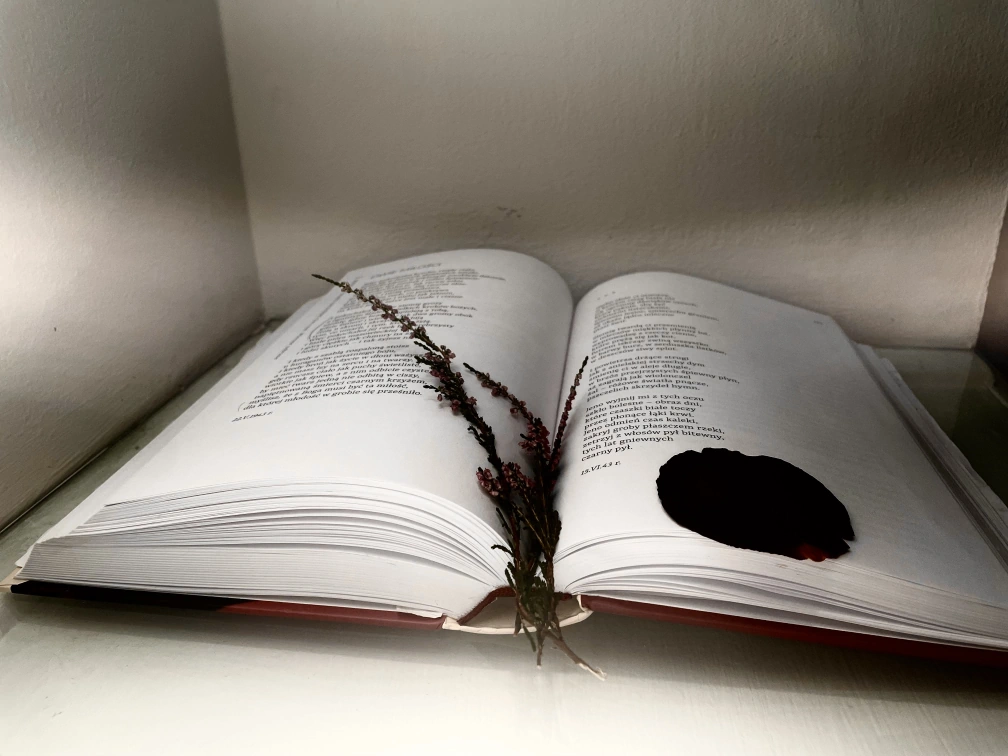
I remember sitting in a Polish literature class early on in high school, hearing for the first time the story of Krzysztof Kamil Baczyński. The young talented poet who fought in the Warsaw Uprising, tragically killed at the age of 23. Immediately, I fell in love with this symbolic figure, merging the age-old themes of love and death. Little did I know that his verses would inspire the title of my first novel years later.
Only remove from my eyes this painful shard –
Shadows which keep tumbling these white skulls
Through burning, blood-filled meadows…
Only undo this time of woe,
Cover graves with a river’s cloak,
Shake the battle dust from my hair,
This black dust of wrathful years.
From the joy of independence to the irreparable scars of war
In the 1920s was born a generation symbolic of Poland’s rebirth. Also, a generation of artists and writers who launched their careers under conditions of unprecedented hardships. Named the “Columbuses” (Kolumbowie in Polish), they were bound for discovering their homeland as a free and thriving country. Just like Christopher Columbus embarked on a groundbreaking journey, the Kolumbowie navigated through uncharted territories and unforeseen circumstances, in a period of immense historical change.
Apart from “discovering” Poland, they were forcefully confronted with a new revelation – the outbreak of WWII, which brought them into death and destruction. They came of age in the turmoil of occupation, becoming witnesses of their homeland’s devastation. What could have been their brightest days of youth, the summer of life, became a dark and cruel age. These young adults were shaped by traumatic experiences, the horror of Nazi German occupation annihilating their country
As our distance grows from these days engrained with threat and anxiety, we can hardly picture what it means to see “dew reddened by blood” or similar images capturing, for the generations to come, at least a vague impression of what people once endured.
These tragic times forced a lesson upon the Columbuses– there is no mercy, no compassion, no love…
And yet, the young people seldom gave in to passively enduring cruelty. Many joined the resistance and fought for freedom, having been brought up in a spirit of service to fellow citizens and to their country. In full humility, they confronted the lot cast against them. Faithful to their upbringing, they were aware of their task to confront the occupier. Even though their young age and lack of military training hardly predisposed them to the life-threatening challenge.
Young Columbuses often paid the heaviest price. But while many lives were tragically cut short, they were paved by decisions which reflected true sacrifice.
A great number of artists and intellectuals left a powerful testimony of these days through their writings. Some did survive the war, watched the unfolding of Soviet occupation and ultimately the return to freedom. It only took over forty years longer than expected to be back in a truly sovereign country.
However, the members of this generation which most move my heart, whose writings bring me shivers, are among the unfortunate who fell in battle.
A cry for remembrance
For Tadeusz Gajcy (1922-1944), the defense of Warsaw in September ’39 left an indelible mark. In one poem, he invites the reader to place an ear on the building walls, to listen carefully to the chorus of painful, bygone existences. The laments of ordinary people trapped by violence suddenly invading the streets. Lives tragically cut short. He still hears the haunting voices of victims, echoing across the city. And thus, his attachment to the city deepens. How can one not love these shattered walls, hiding behind them the two faces of Warsaw – one dead, the other alive.
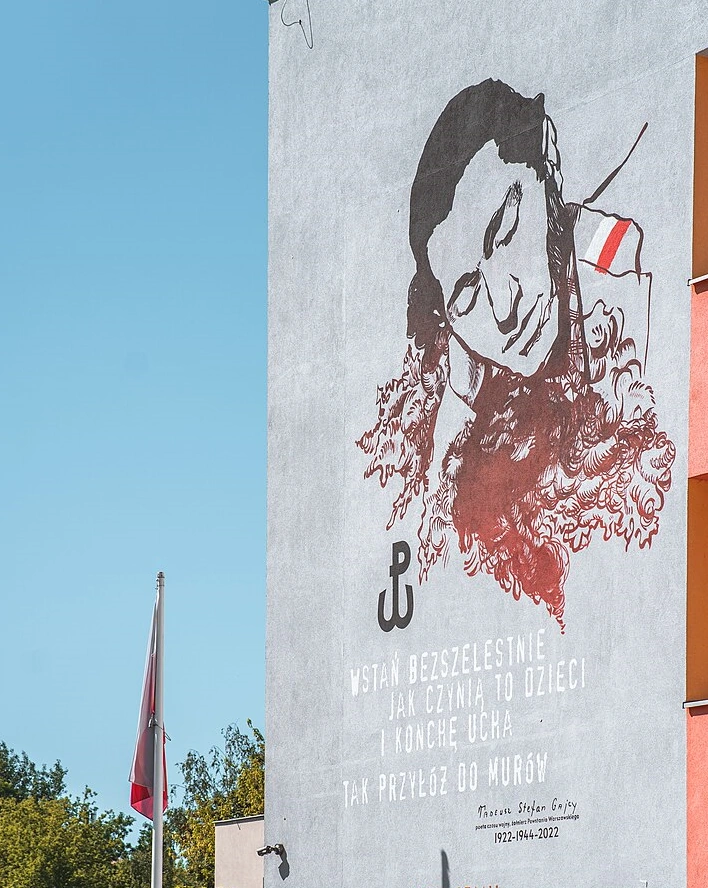
Gajcy’s call for remembrance extended into future generations, those he would never live to speak to in person. In his poem “To a descendant”, he draws an invisible connection between past and future, himself and the ones to come. And while the future world will be renewed, becoming foreign to the suffering and drama of wartime, he forges a bond of empathy between the two incomparable worlds.
From the perspective of one already deceased, he speaks to someone living in post-war Poland, trying to establish a spiritual connection with one not yet born. Through poetry, he is empowered to escape oblivion. The verses build up a gravestone, passing on the truth about his times – describing death, annihilation, and pain. While he has accepted his mission and the tragic fate tied to it, he needs to make sure he will continue to live through the memory of future generations. Recognizing the imminent threat of death, he feels pushed even harder towards leaving a trace of his earthly days… An urge to immortalize the experiences of a generation…
Without such testimonies, we might never have believed the horrors of the past.
Without the shouting cry for remembrance, we would have brushed away these events as irrelevant and anachronistic.
Our fickle and imperfect hearts easily forget, especially those we have never even known. And while we are young, we want to live freely, tossing off the burden of the past.
Until we coincidentally stumble upon a poem that is unambiguously addressed to us, the descendants. And its verses are unsparingly convicting.
“Doubtless, I am just like you…”
He hoped that the distance in years and realities would not efface the fundamental connection, unbreakable between human beings…
Between two loves
Patriotism, revealed under various facets, is deeply engrained in the Columbuses’ legacy. As they navigated the complexities of war, occupation, and the struggle for independence, a strong sense of national identity and loyalty was instilled in their hearts.
Their poetry often celebrated the rich cultural heritage of Poland, lauded the heroism of those who fought for freedom, and mourned the losses suffered by their homeland – a poignant blend of pride and sorrow, of beauty and destruction. Patriotism went beyond expressing love for their country – it was also a testament of their unwavering resilience in the face of adversity. Writings often reflect a complex interplay between personal experiences and the broader narrative of their nation’s struggle, forging a powerful connection between the two sentiments. Love which is both romantic and patriotic.
No one better embodies the spirit of this generation than my all time favorite poet, Krzysztof Kamil Baczyński. Poet, soldier, and lover. He was one of my first inspirations when I began discovering stories of the Warsaw resistance…
Krzysztof Kamil Baczyński (1921 – 4.08.1944)
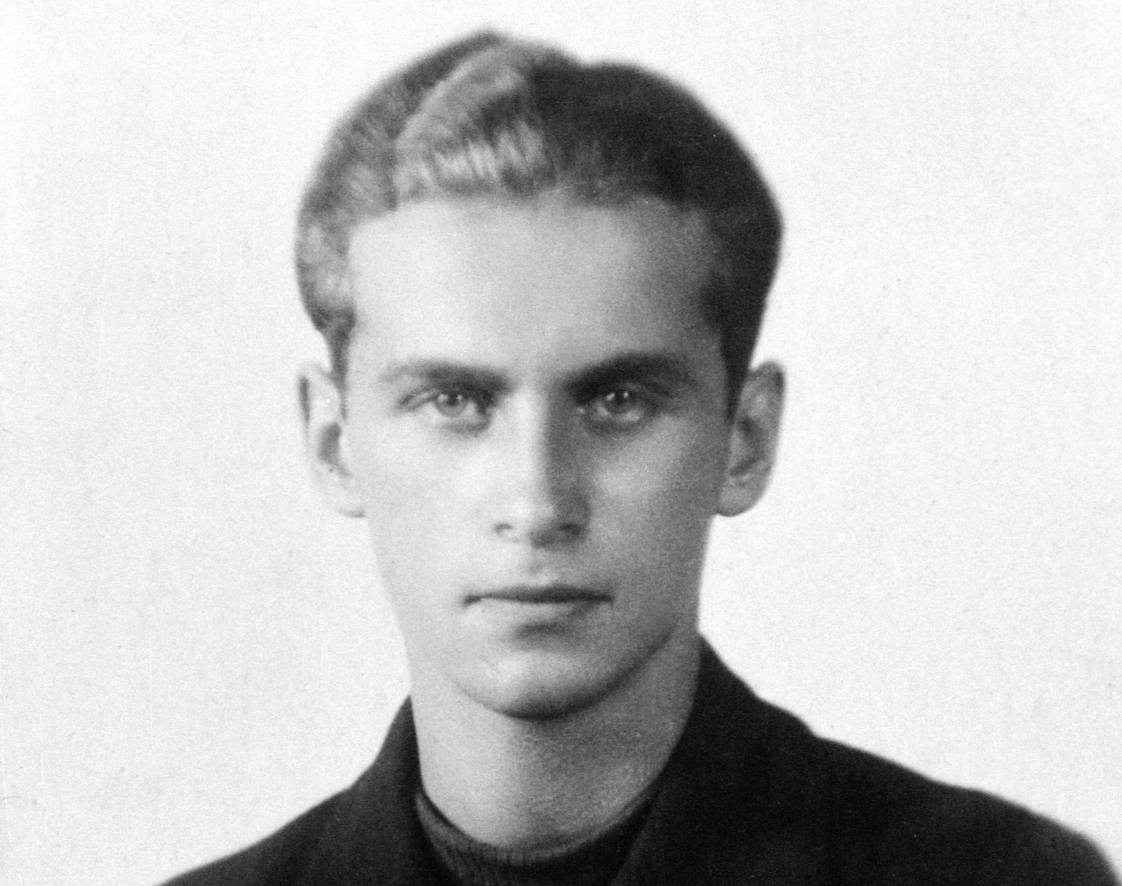
Baczyński’s artistic talent went beyond poetry, into watercolor painting. However, his dreams of studying fine arts were rendered impossible by the outbreak of war. Still, he somehow found a way of integrating these desires into his verses. The latter hold strongly evocative imagery, fading behind a dream-like blurriness. If his words were turned into brushstrokes, they would form a watercolor painting rich in hues, sharp in places yet somewhat misty.
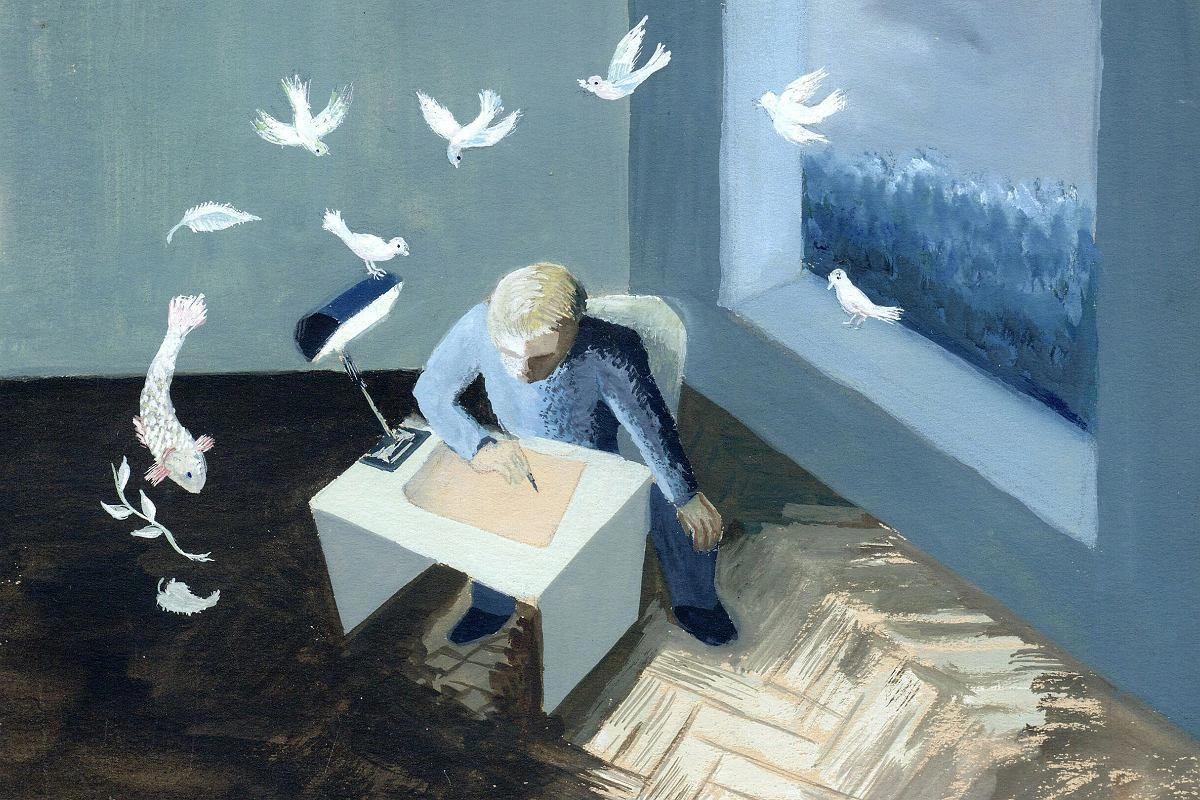
Baczyński joined the Polish resistance in 1942 as a member of the Szare Szeregi scouting movement. He took part in many sabotage actions, although some superiors were weary of sending him off – back then his talent was already becoming obvious, and thus needed to be protected. Baczyński, however, was frustrated by this constant over-protectiveness, and burnt with a desire to be taken more seriously as a soldier.
Was he as brave with a weapon as he was with a pen? Probably not… By the order of his leader Andrzej Romocki “Morro”, on July 1st, 1944, Baczyński was dismissed from his function, apparently because of health problems contributing to his “limited usefulness in field conditions”. To emphasize his talents in other domains, Morro suggested he take over the unofficial post of the battalion’s press chief. Well, Krzysztof was not too flattered by this turn of events… A few days later, he transferred to another scouting battalion, “Parasol”.
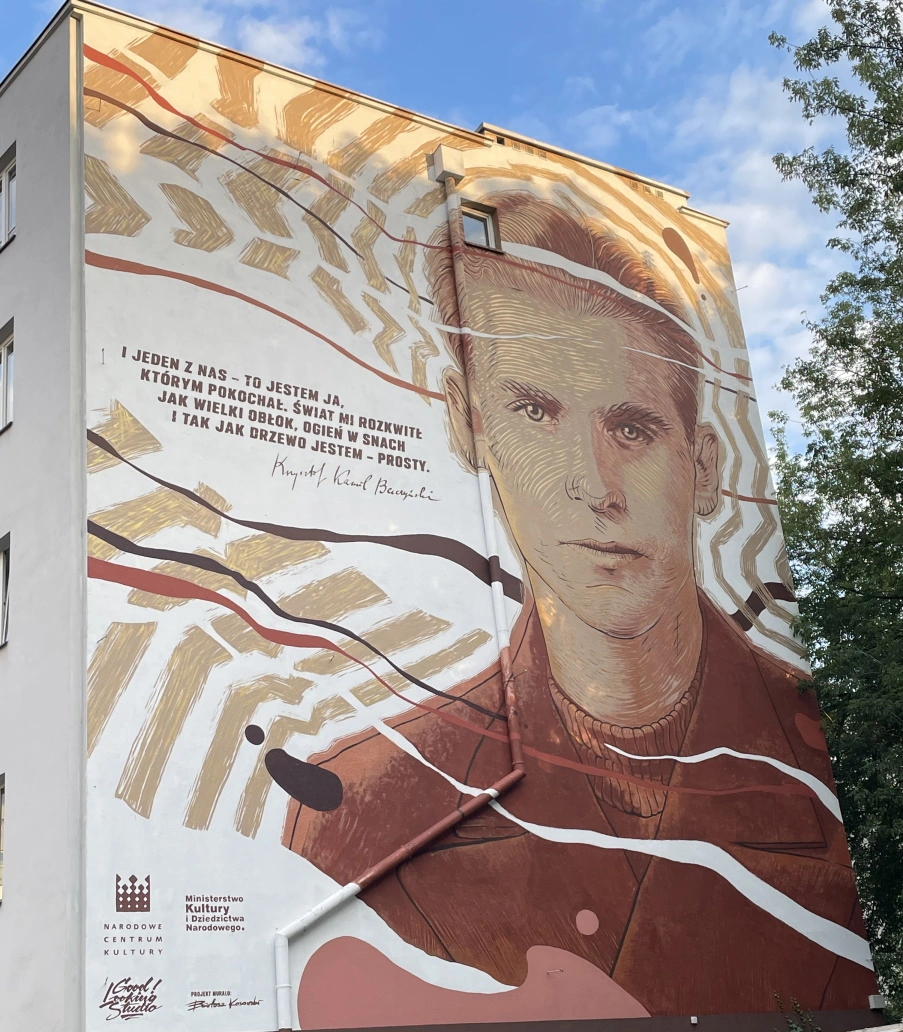
He was killed on 4th day of the Warsaw Uprising, in the Old Town, shot by a German sniper at approximately 4pm. His beloved wife, Basia, was four months pregnant, but still volunteered to serve as nurse in a field hospital. Wounded during a bombing on August 24th, she succumbed on September 1st. At the moment of her death, she clung to her heart a volume of her husband’s poetry. Not until the very end did she learn about Krzysztof’s death. “I am coming towards you…” were her last words… Not two, but three Baczyńskis were lost during the Warsaw Uprising – husband, wife, and their unborn child.
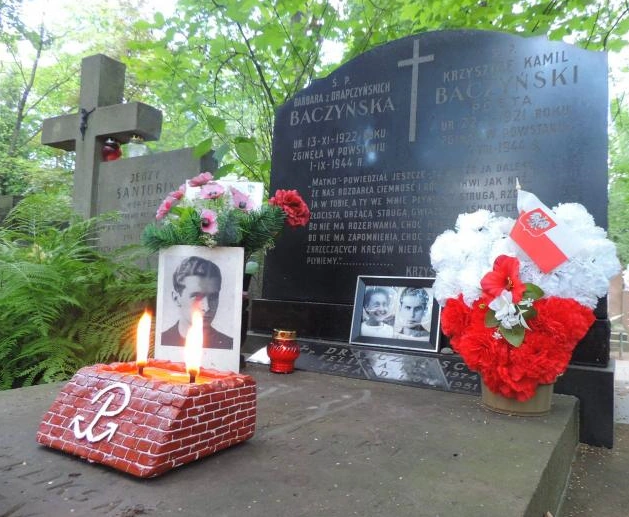
Legendary poet and soldier
Baczyński’s poetry vividly captures the plight of war. His verses are heartbreaking, with depictions of the brutality of war echoed through apocalyptic imagery. Sometimes there is despair, other moments utter a call to fight.
And yet, his catastrophism is perfectly merged with romantism. Darkness is nearly always infused with a sense of lyrical beauty. Even in the direst circumstance, life’s fragility and imminent threats of death coexist with hope and love. While emphasizing the need to remember those who have died, he calls to celebrating moments of beauty, surviving amidst the obscurity.
The charade of Baczyński’s lyrism is a constant interaction between love and death. Verses embodying picturesque scenes are also imbued with presentiments of his own tragic end. When one knows his life story, reading the words he left is all the more disturbing. Despite their darkness, his works are full of hope, bravery, and determination to meet the challenges of fate. Today, we can still draw from him an inspiration and courage to take life as it is and to find beauty, joy, and fulfilment in even the most difficult conditions.
Just like young people today, he was thirsting for life. But he also knew he was not given long to walk in this world. He once told his mother that he needed to live his life quickly, as fully as possible.
At the heart of everything, he saw love as the only force able to effectively defend man against the surrounding horrors. Even when everything around suggested that mercy and compassion had departed from the surface of the earth.
Songs accompanying battle times - Józef Szczepański (1922- 10.09.1944)
Józef Szczapański, (codename “Ziutek”) was like Baczyński a soldier in the famous scouting battalion “Parasol”. His work is a chronicle of Parasol’s battles during the Warsaw Uprising. He wrote throughout the fights, catching impressions of the moment. Some of these verses were playful rhymes turned into songs chanted by soldiers in battle, instilling in them a new strength to vanquish the enemy.
While the German soldiers were conducting storm after storm on one of the townhouses the insurgents were holding, trying to break down their defense, Ziutek turned the nightmare into a poem. Experimenting on a piano that coincidentally was available on the premises, he created a melody one night in an interval between assaults. Catching the whimsical tune, his companions were suddenly uplifted before the next attack. The song “Palacyk Michla” quickly became one of Parasol’s favorites.
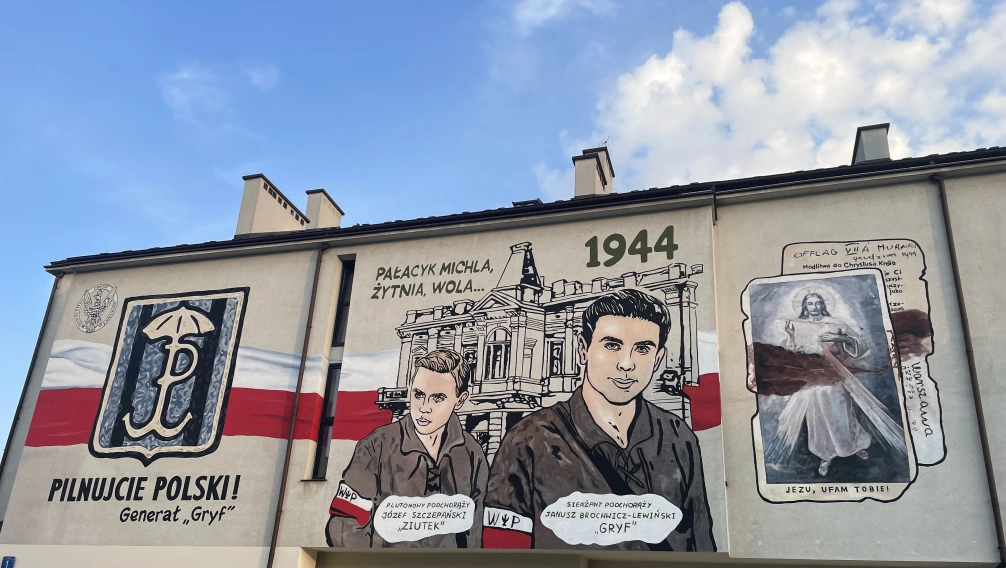
Despite his overwhelming optimism, Ziutek also reflected the darker realities of his time. Before the uprising broke out, the Red Army had stubbornly paused its march towards Warsaw, and waiting on the opposite riverbank, did nothing to support the Polish army’s struggle.
Well, Ziutek had something to say about these approaching “liberators” who before arriving, waited for the insurgents to shed all their blood. Behind his acidly anti-Soviet work, „The Red Plague” (Czerwona Zaraza), Ziutek expressed his anger and disappointment at the idleness of our so-called allies. The enemy of our enemy was far from acting as a friend… In a string of dark presentiments intertwined with humorous remarks, Ziutek described the unwelcome arrival of the Red Army about to swallow up Poland under another oppressive dominion.
We await you, Red Plague,
to save us from the Black Death,
to be salvation welcomed with revulsion
After you have teared our country apart
Heavily wounded on September 1st, Ziutek died on the 10th, and hence did not live to see his prophecy come to life – in the post-war Soviet occupation, which merely replaced one totalitarian regime with another.
Testament of a robbed youth
This sublime blend of beauty and death gives a loud voice to those fallen in wartime. Poets who left an unforgettable testament, even when they sensed that no age would ever truly grasp the absurdity of their days, the odd preoccupations triggered in their hearts. And yet, amidst the realms of inconceivable evil, the Columbuses did not let their souls turn void. In their brief and troubled lives, they were able to find meaning, to catch moments of grace and transcendence.
Inspired by the Columbuses’ legacy, I tried to depict the spirit of their times in my writing. Dust of Wrathful Years paints a picture of this generation, with characters whose lives symbolize the shattered childhood dreams.
The Columbuses set off for exploration – not only of an odd age - but also of the human condition, discovering the realms of resilience, courage, and empathy, even during a tumultuous era. Many never returned from their journey.
Tags: comments powered by Disqus